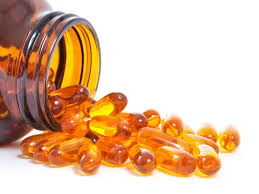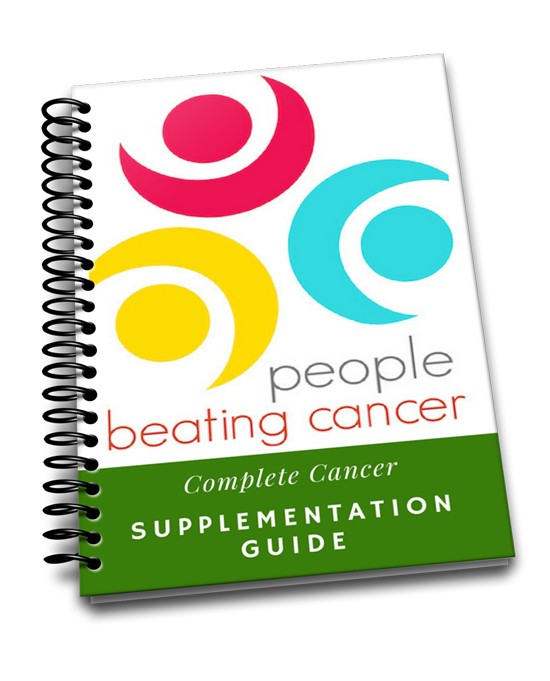“The preponderance of epidemiologic data indicates vitamin D3 deficiency is associated with an increased incidence of breast cancer. Furthermore, recent studies show that low vitamin D levels are associated with increased breast cancer recurrence and mortality rates”
I’ve never understood why conventional oncology doesn’t prescribe evidence-based, non-conventional therapies such as vitamin D3. When you want to reduce the risk of a breast cancer diagnosis, the risk of a breast cancer relapse, reduce the risk of breast cancer metastasis, reduce bone pain caused by aromatase inhibitors or enhance your bone health, the studies linked and excerpted below cite the benefits of vitamin D3 as an inexpensive, non-toxic therapy.

Full disclosure. I am a cancer survivor and cancer coach. I have taken many different types of supplements (vitamins, minerals, antioxidants, etc.) for years and continue to do so.
I achieved cancer-free status from my incurable blood cancer called multiple myeloma in early ’99 where I remain today. Yes, I believe in the importance of nutrition/diet, exercise, detoxification and other evidence-based therapies as well. But taking certain supplements daily such as vitamin D3, omega 3 fatty acids, vitamin C and others, I believe are central to cancer patients and survivors- all cancer patients and survivors.
I am not being critical of conventional/traditional oncology when I say that they are limited in their support of cancer patient and survivors. I understand the importance of the FDA and their tight control of medicine in the United States. But as a long-term cancer survivor I see living with cancer as requireing much more than what conventional oncology offers a cancer patient.
I take Life Extension Vitamin D3, 1000 mg. pearls. Convenient, inexpensive. Tested and approved by ConsumerLab.com.
Have you been diagnosed with breast cancer? Are you considering undergoing an aromatase inhibitor? Are you worried about osteoporosis? Please scroll down the page, post a question or commet and I will reply to you ASAP.
To Learn More about vitamin D3- click now
Thank you,
David Emerson
- Cancer Survivor
- Cancer Coach
- Director PeopleBeatingCancer
Recommended Reading:
“While the frequency of deficiency for most vitamins is low in the United States, mainly due to dietary intake and multivitamin use, vitamin D deficiency is common [1, 2]. The prevalence of vitamin D deficiency (35–60%) is much higher than that of other vitamins among Americans…
The preponderance of epidemiologic data indicates vitamin D deficiency is associated with an increased incidence of breast cancer [11–13]. Furthermore, recent studies show that low vitamin D levels are associated with increased breast cancer recurrence and mortality rates [14–17]. In addition, breast cancer patients are at increased risk for a number of medical complications associated with vitamin D deficiency including bone loss, falls, fractures, and infection…
25-OH vitamin D is the accepted assessment of vitamin D status and provides a comprehensive measure of vitamin D from all sources (diet, sunlight, and supplementation). Although there is not a “standard” definition of vitamin D status, a widely accepted classification is deficiency at <20 ng/ml, insufficiency at 20–31 ng/ml, and an optimal range of ≥32 ng/ml [29–31]. Despite a number of clinical trials, researchers and clinicians remain divided on the proper supplementation amount to achieve a normal 25-OH vitamin D level…
It is imperative that breast cancer patients maintain optimal vitamin D levels to minimize the risk of treatment-related problems such as bone loss, arthralgias, and falls. Clinicians need to carefully consider the vitamin D regimen (amount and type) when treating vitamin D deficiency in breast cancer patients due to the limited efficacy of daily low-dose supplementation…”
“A deficiency in vitamin D is associated with tumor progression and metastasis in breast cancer, suggests a new study.
The study, primarily conducted using cell lines and mice, also identified an association between vitamin D levels and the expression of ID1, an oncogene that has been associated with tumor growth and metastasis in breast cancer and other cancer types…”
“Although there are not yet enough clinical trials in humans to prove this, some clinical and preclinical studies indicate that avoiding vitamin D deficiency and taking vitamin D supplements might be a cost-effective and safe way to prevent cancer and improve prognosis in patients already diagnosed with the illness…”
“However, results from 16 trials of Calcium and Vitamin D supplements at doses commonly recommended, indicate that 500-1500 mg calcium and 200-1000 IU vitamin D/day were inadequate to inhibit bone loss in pre- and postmenopausal women with breast cancer…”
“High-dose vitamin D supplementation significantly improves musculoskeletal pain and discomfort caused by aromatase inhibitors (AIs) and may have a positive effect on bone health, according to a single-center, phase 2 study reported in the August issue of Breast Cancer Research and Treatment…”
APPIP ERROR: amazonproducts[
AccessDeniedAwsUsers|The Access Key Id AKIAJAJ37JVNL7OUU4CA is not enabled for accessing this version of Product Advertising API. Please migrate your credentials as referred here https://webservices.amazon.com/paapi5/documentation/migrating-your-product-advertising-api-account-from-your-aws-account.html.
]




